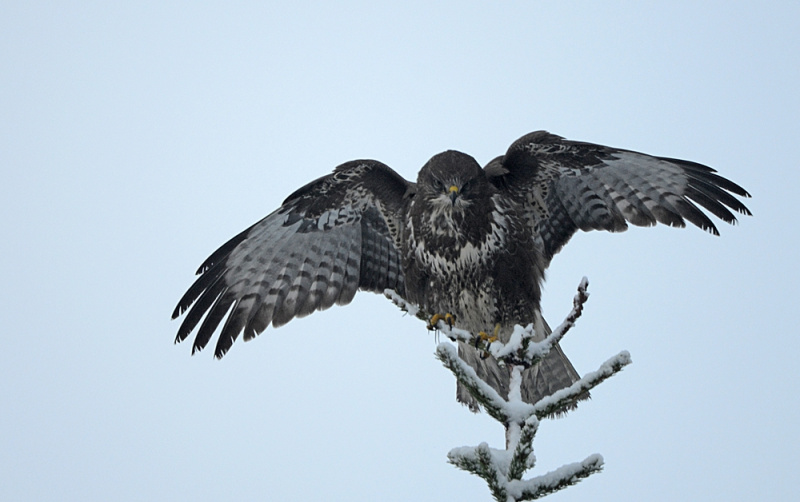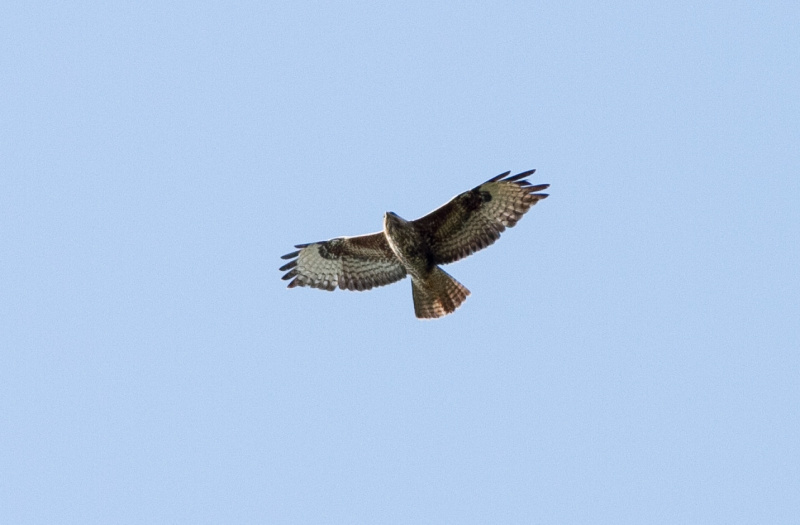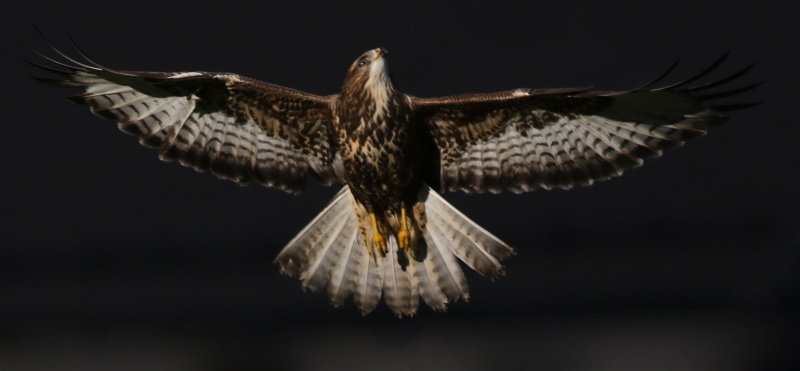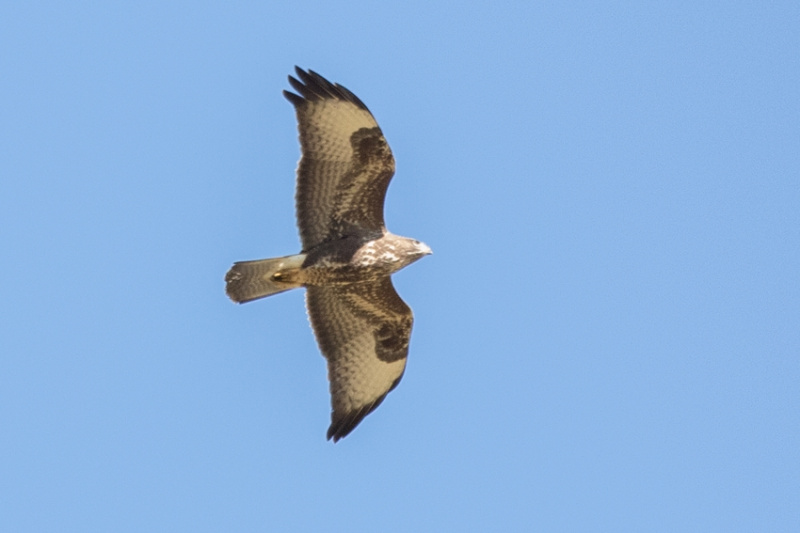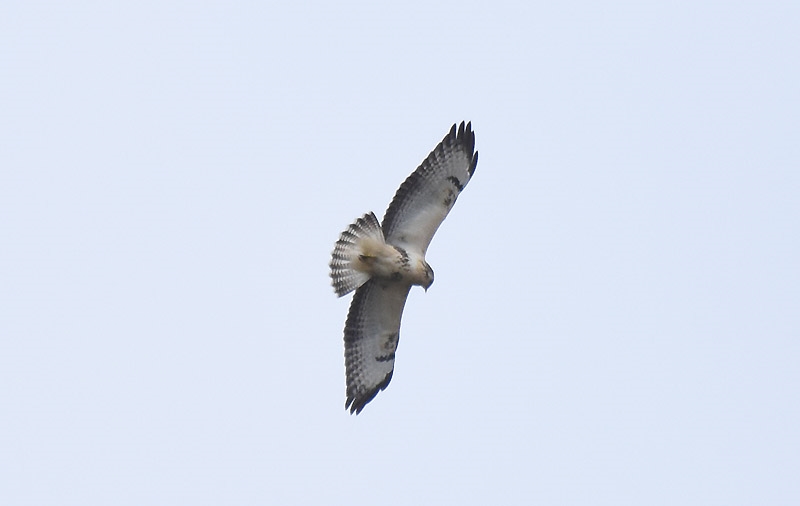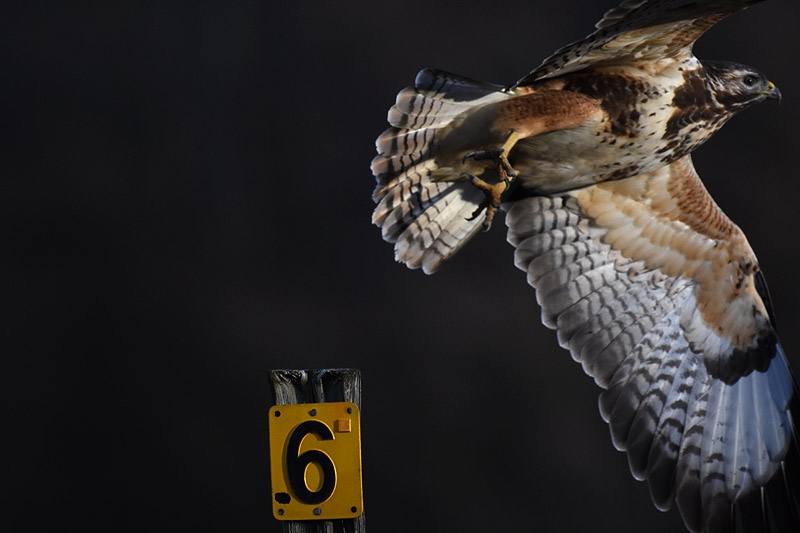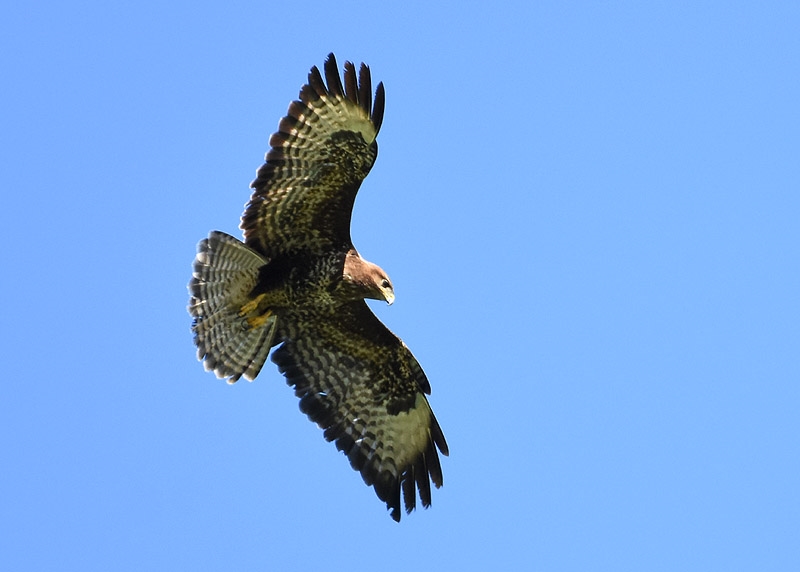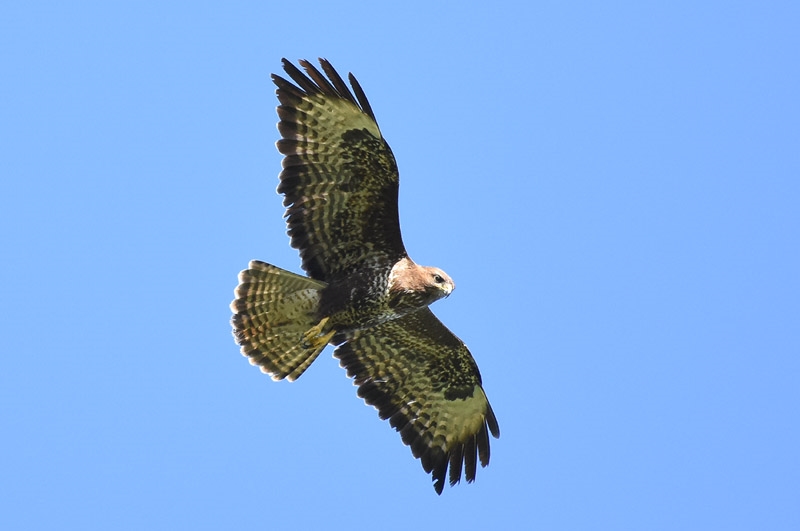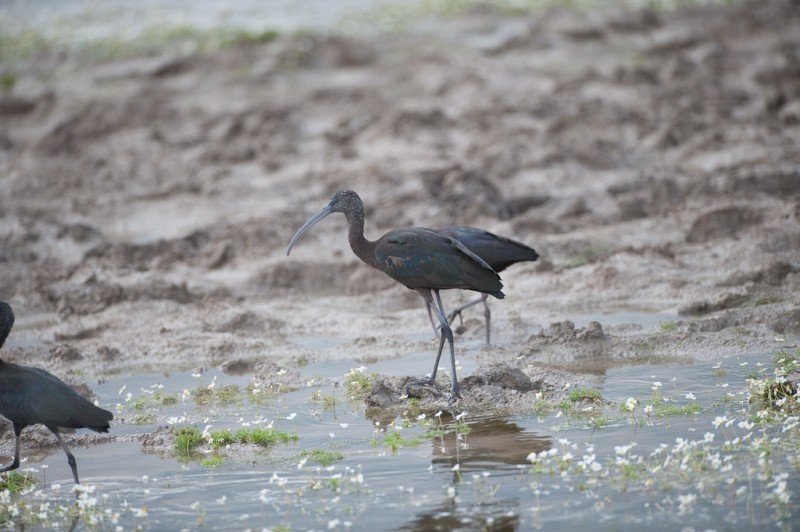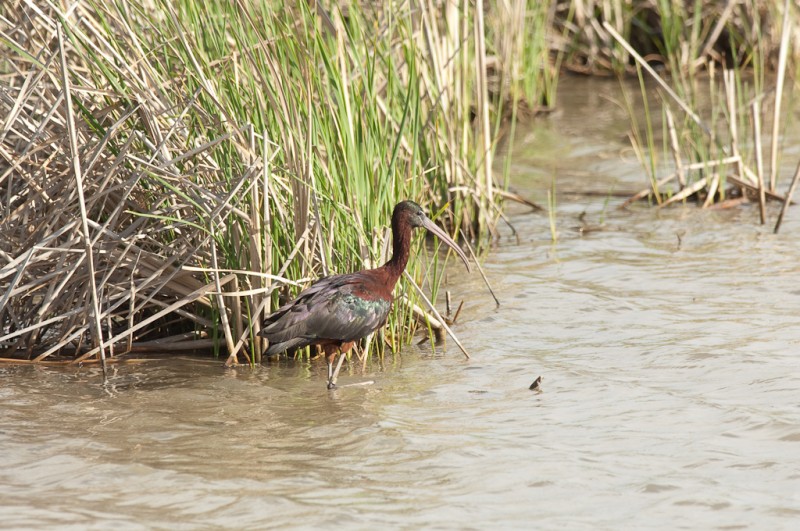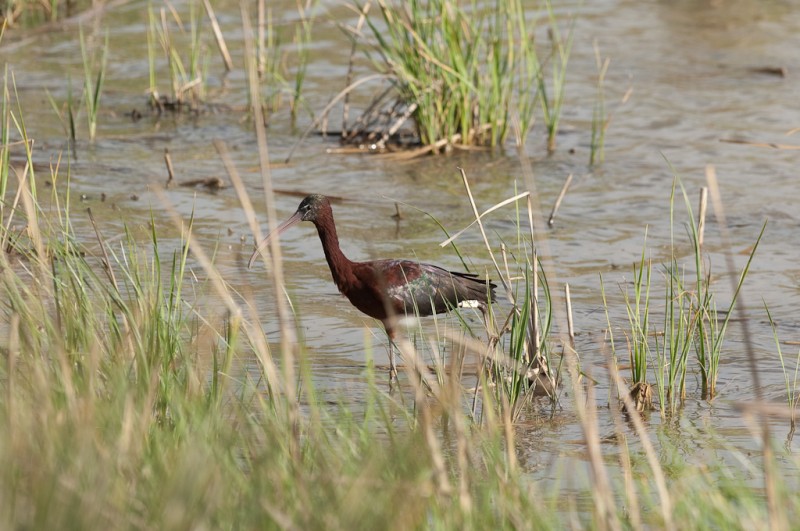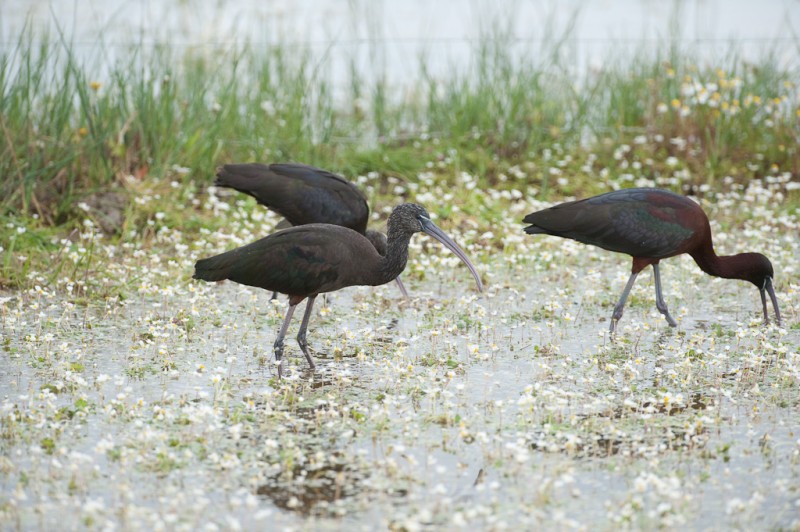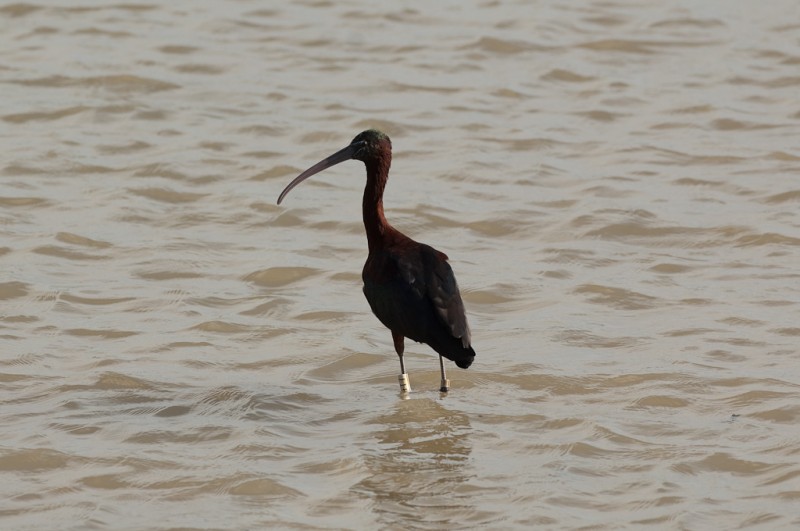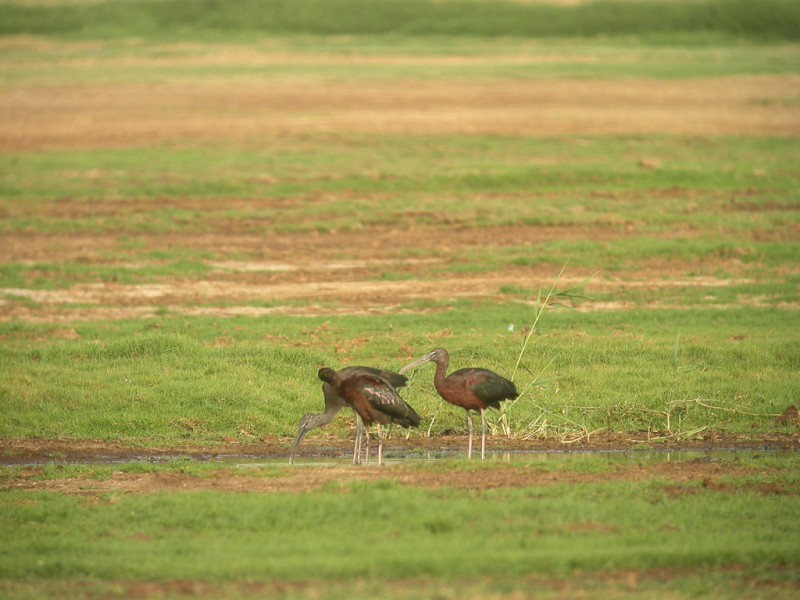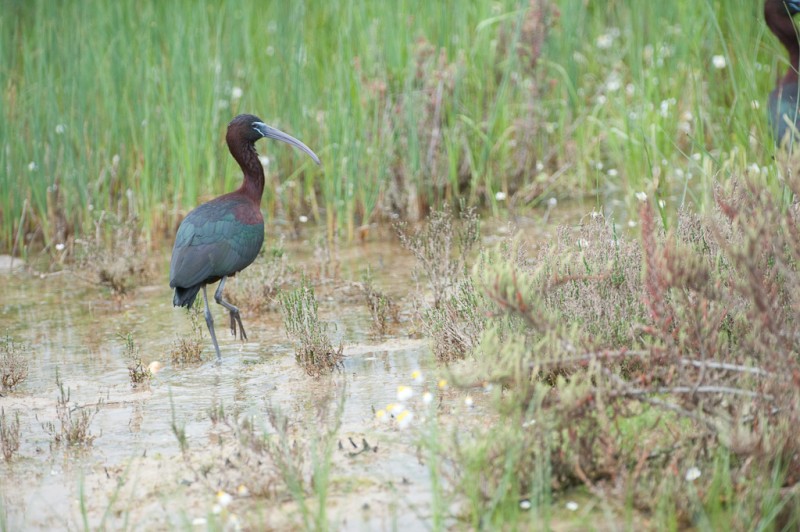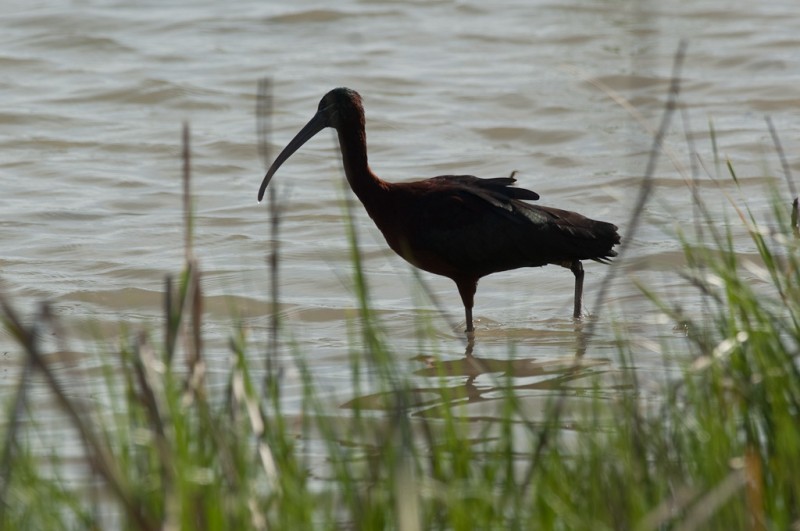Buzzard (Buteo buteo)
Glossy Ibis (Plegadis falcinellus)
Small head, short, thick neck, quite broad wings and fairly short tail. May be confused with a range of different species due to the highly variable plumage. Underparts range from almost white to very dark. Plumage tone ranges from chocolate to rusty brown. Dark morph usually with pale breast band. Shows 5 fingers like other Buteo, as opposed to small eagles. Tail lacks the broad terminal band of Rough-legged Buzzard. Neck thicker than in Honey Buzzard. Secondary coverts form a pale band in dark morph. Light morph typically with primary coverts forming black 'comma'. Soars with raised wings, but glides on straight wings.
Sound:Quite vocal. Most typical call a wailing, mewing "peeoooo". Quite similar to Rough-legged Buzzard, but the pitch falls more rapidly and is then sustained for the last part of the call.
Call:
Distribution:
Wikipedia: map (se also Xeno-canto below)
Ecology:Birdlife ecology
Links:
Observation.org Latest observations
Image search Flickr NB! May give other species
CCResembles a big, black Curlew, but can only be confused with Bald Ibis. Differs from this by longer, slender neck, rounded and feathered head, long legs (trailing in flight) and heavier bill. Bare parts greyish, not red. Adults with glossy green wings. Immatures and birds in winter plumage with white-speckled head and neck. Head and legs droops slightly below horizontal plane in flight, leaving a "hunched" impression. Wing beats faster than herons of same size. May glide longer distances, but does not soar like Bald Ibis. Flight formation loose, diagonal or in single file with undulating movements.
Sound:Generally silent away from breeding ground. Dry, crow-like "garr garr", may be heard occasionally in flight. At breeding ground various guttural grunts, and piping, hissing sounds.
Flightcall:
Distribution:
Wikipedia: map (se also Xeno-canto below)
Ecology:Birdlife ecology
Links:
Observation.org Latest observations
Image search Flickr NB! May give other species
CC
 English
English Albanian
Albanian
 Armenian
Armenian
 Bulgarian
Bulgarian
 Catalan
Catalan
 Croatian
Croatian
 Czech
Czech
 Danish
Danish
 Dutch
Dutch
 Finnish
Finnish
 French
French
 Georgian
Georgian
 German
German
 Greek
Greek
 Hungarian
Hungarian
 Italian
Italian
 Latvian
Latvian
 Lithuanian
Lithuanian
 Macedonian
Macedonian
 Norwegian
Norwegian
 Polish
Polish
 Portuguese
Portuguese
 Romanian
Romanian
 Russian
Russian
 Sami : Lule sami
Sami : Lule sami
 Sami : North sami
Sami : North sami
 Sami : South sami
Sami : South sami
 Scientific names
Scientific names
 Serbian
Serbian
 Spanish
Spanish
 Swedish
Swedish
 Ukrainian
Ukrainian


